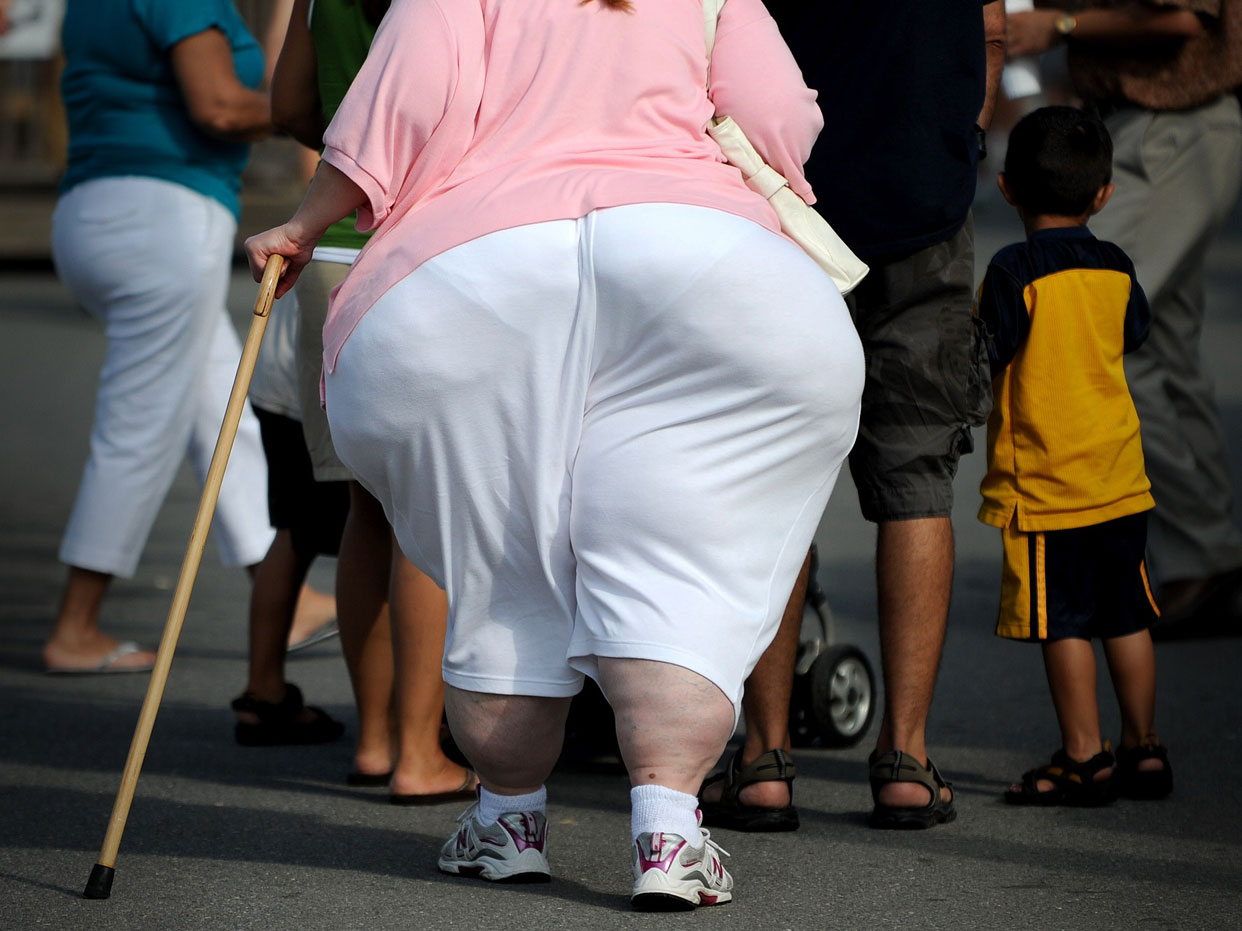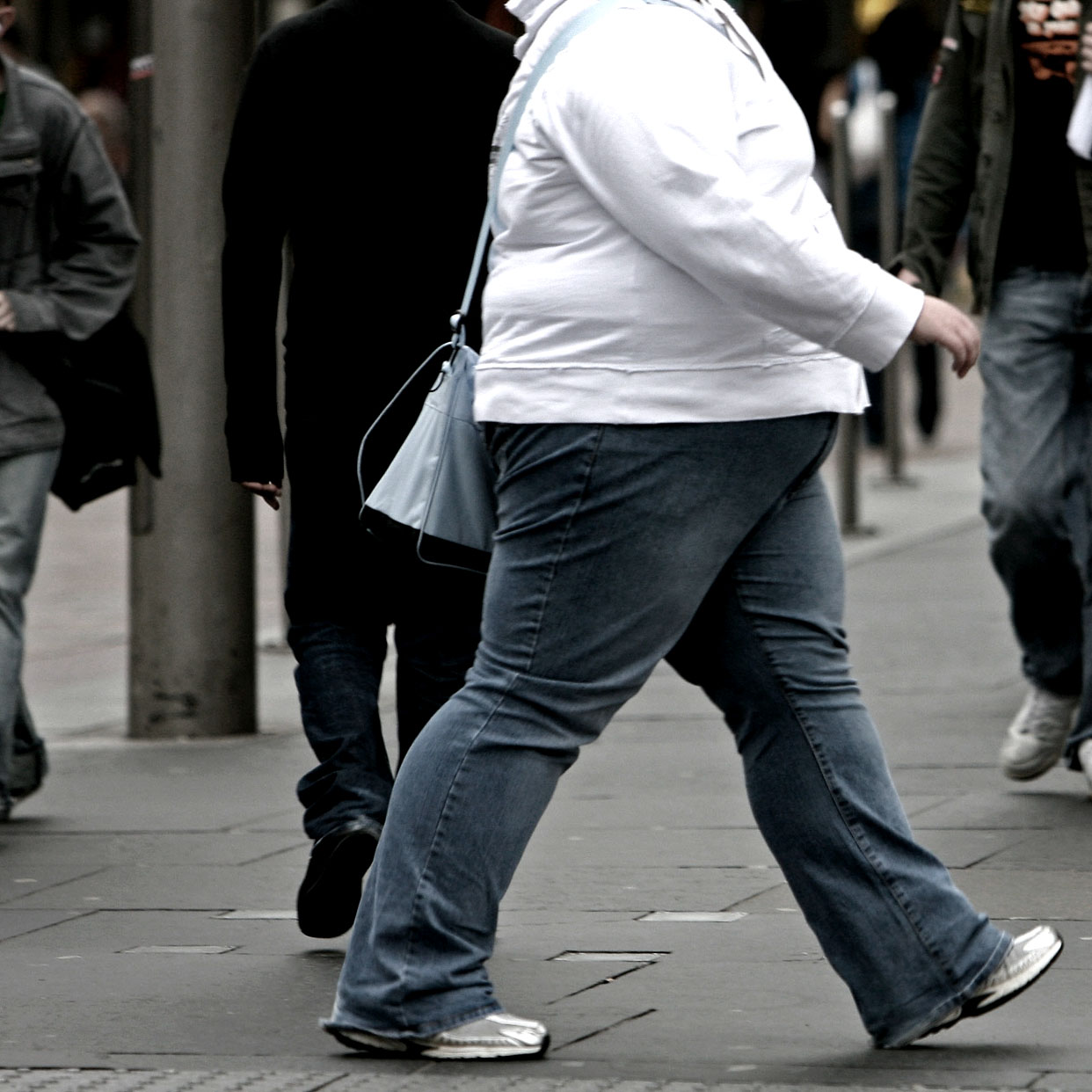Why is the UK so fat?
Government urged to reclassify obesity as a disease

A free daily email with the biggest news stories of the day – and the best features from TheWeek.com
You are now subscribed
Your newsletter sign-up was successful
Leading UK doctors are calling on the Government to reclassify obesity as a disease in a bid to tackle Britons’ rapidly expanding waistlines.
The Royal College of Physicians (RCP) says it has come to the conclusion that obesity “isn’t a lifestyle choice” but instead depends on genetic predisposition and environmental factors.
“Recognising it as a disease allows people to see they have a disease and reduces the stigma of having obesity,” Andrew Goddard, President of the RCP, told Sky News.
The Week
Escape your echo chamber. Get the facts behind the news, plus analysis from multiple perspectives.

Sign up for The Week's Free Newsletters
From our morning news briefing to a weekly Good News Newsletter, get the best of The Week delivered directly to your inbox.
From our morning news briefing to a weekly Good News Newsletter, get the best of The Week delivered directly to your inbox.
How bad is the problem?
Nearly a third of adults in the UK are obese, triple the number since 1980. The NHS spends around £6bn a year treating the condition, which is responsible for more than 30,000 deaths a year.
According to the National Obesity Forum, the four most common health problems related to being overweight are high blood pressure, coronary heart disease, type 2 diabetes and some forms of cancer.
How does the UK compare with the rest of the world?
A free daily email with the biggest news stories of the day – and the best features from TheWeek.com
The average body mass index (BMI) of people in the UK is 27.3, which is overweight, according to data from the World Health Organization. This makes the UK the 24th most obese country in the world, in joint place with Greece, South Africa and Saint Vincent and the Grenadines.
At the top of the list is Nauru, Mexico, New Zealand and Kuwait, the only countries with average BMIs of more than 30, classified as obese. Eritrea, meanwhile, had the lowest average BMI at 20.5, a healthy weight.
Why are Britons so fat?
Soaring obesity rates have been blamed on modern lifestyles, with most people having easy access to high-calorie foods and sedentary jobs. Individuals have long been blamed for bad dietary habits - but now leading medical experts are insisting the matter is not that simple.
RCP president Goddard tells The Daily Telegraph: “It is not a lifestyle choice caused by individual greed, but a disease caused by health inequalities, genetic influences and social factors.”
That view is shared by Professor Rachel Batterham, who specialises in obesity research for University College London. “We know the biology now and there are over 100 DNA that have been identified showing how some people will develop obesity and others will be protected,” she says.
However, David Buck from health think-tank The Kings Fund says: “Obesity isn’t a disease, it’s a condition, an outcome. I am slightly overweight, according to government statistics, but I don’t see myself as suffering with a disease. It’s because of the environment I live in, the choices I make.”
-
 How corrupt is the UK?
How corrupt is the UK?The Explainer Decline in standards ‘risks becoming a defining feature of our political culture’ as Britain falls to lowest ever score on global index
-
 Best places to find snowdrops in the UK
Best places to find snowdrops in the UKThe Week Recommends The snowdrop season is upon us, with ‘blankets’ of the beautiful bloom signalling that spring is on its way
-
 The 8 best superhero movies of all time
The 8 best superhero movies of all timethe week recommends A genre that now dominates studio filmmaking once struggled to get anyone to take it seriously
-
 Tirzepatide and the other ‘breakthrough’ obesity drugs
Tirzepatide and the other ‘breakthrough’ obesity drugsfeature Huge demand for weight-loss medication means prices have soared
-
 The Week Unwrapped: Russian visas, Arab fattism and quiet quitting
The Week Unwrapped: Russian visas, Arab fattism and quiet quittingpodcast Is Finland an unwilling backdoor to Europe? Has fat-shaming reached the Middle East? And are young workers really slacking off?
-
 ‘The Tories will stick with the devil they know’
‘The Tories will stick with the devil they know’Instant Opinion Your digest of analysis from the British and international press
-
 The Week Unwrapped: Cuba, friendship and office dogs
The Week Unwrapped: Cuba, friendship and office dogspodcast What’s behind the latest Cuban protests? Can dating apps help us make friends? And should we welcome animals at work?
-
 The Week Unwrapped: Strict schools, swimming caps and the four-day week
The Week Unwrapped: Strict schools, swimming caps and the four-day weekpodcast Do more rules make for a better education? Is a ban on “Afro caps” a blow to sporting diversity? And will Covid boost calls for a four-day working week?
-
 The Week Unwrapped: Hazardous heat, nuclear fusion and divisive dieting
The Week Unwrapped: Hazardous heat, nuclear fusion and divisive dietingpodcast What does a Pakistani city hitting temperatures too hot for the human body tell us about climate change? Could a new nuclear project provide a breakthrough in clean energy? And is a ‘medieval’ dieting device really so controversial?
-
 Personal trainer refuses to work with ‘fat people’
Personal trainer refuses to work with ‘fat people’Speed Read And other stories from the stranger side of life
-
 Today’s front pages: local elections, London marathon and obesity warning
Today’s front pages: local elections, London marathon and obesity warningIn Depth A round up of the headlines from UK newspapers on 29 April